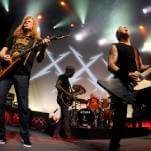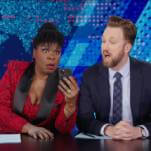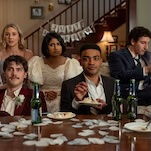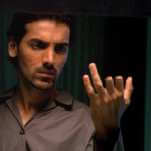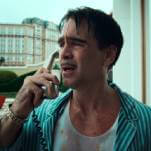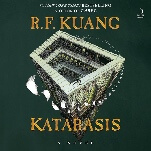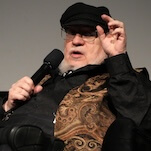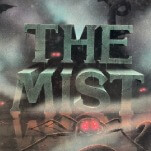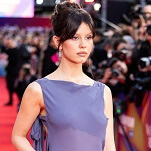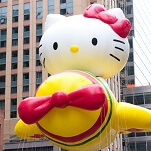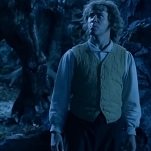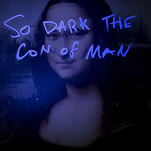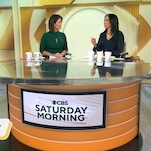At a magazine job I once had, everyone worked late on Fridays, so at some point in the publication’s history, the union demanded the company pay for dinner. Friday night dinner, a somewhat fancy affair held in a formal dining room, became a weekly version of an office holiday party, where higher-ups mingled with peons, free wine flowed, and people tried to avoid saying stupid things everyone remembered once they sobered up. At one such dinner, an extremely awkward situation arose at my table of five, at which I was the only black person. One of the summer interns talked about a terrible moviegoing experience she had, then looked me dead in the eye and asked why black people talk so much at the movies. That moment when a hush falls and a single piece of flatware lands loudly on a plate? It was that.
I wasn’t offended by the question, but it’s the type of question to which I’d usually politely express my disinterest in speaking for all black people. In this instance, I wanted to cut the tension, and I had an answer so I calmly offered it. I explained that there really isn’t such a thing in the black tradition as a performance in which the audience is expected to passively observe. You go to a concert, there’s call and response. Then you go to church, where there’s also call and response. You go to a black gospel play…so forth and so on. Tyler Perry’s stage plays (which acquit him in a way his films never could) are downright Brechtian, with Perry stopping in the middle of a scene and doing 15 minutes of in-character stand-up comedy directly to the audience, with the actors behind him laughing as hard as anyone. To expect the same audience to treat Paul Blart 2 like a Catholic mass is to court disappointment. She was genuinely appreciative and people discovered how to make eye contact again.
I bring up the story to illustrate the point that cultural differences create unnecessary distance because they’re usually never explained, and they are often really easy to demystify. The thing that sticks in my craw with Black-ish is its tendency to present these differences both as truisms and as groundbreaking new information. Andre’s narration in the cold open of “Elephant In The Room,” as was the case in last week’s sufficiently Raven episode, builds a case for the black community’s overwhelming support of the Democratic party, but never manages to offer up any real context for or ideas about the phenomenon. It really does pain me to hold Black-ish to such unreasonably high standards, but it’s so frustrating to watch the show swinging a stick at satire blindfolded and never making contact.
Hence the high grade for “Elephant,” which is fresh and funny, despite being yet another episode that feels like it’s got bargain dentures where its fangs should be. It’s at least an improvement over “Please Don’t Ask, Please Don’t Tell” in that its premise is undeniable. Black people overwhelmingly vote Democrat, and the stigma against conservative ideas in the black community is palpable. Black-ish demonstrates this in a hilarious, cartoonish way by having Rainbow and Ruby literally unable to process what Dre is saying when he tells them Junior is a Republican. (Ruby: “He wants to be a publican. A British tavern owner. Noble profession.”) The women are so devastated they comfort each other with the warmest embrace they’ve ever shared.
Naturally, Junior doesn’t have a donkey in the fight, he’s only interested in impressing Hillary Montgomery, the secretary of his school’s Young Republicans Club. Dre is comforted, but Bow wisely warns him he wouldn’t be eating seaweed chips if the stuff guys do to impress women can’t have a lasting impression. When Dre and Bow try to reason with him, he asks why they’re Democrats, and Courtney Lilly’s script swipes at the idea that neither of them really knows why. It’s a sharp, provocative idea, and a point at which it might have been interesting to see Dre and Bow wrestle with it in the same way they did with the cultural expectation that Dre should be spanking the kids. This, after all, is what kids do, force their parents to examine where their most closely held values come from and why they’re worth passing on. Instead, they drove their heels in deeper, while Junior says he’s preparing to run for president of the Young Republicans, leading to what might be my favorite cutaway of the season:
The Montgomerys have the Johnsons over to their mansion, and it isn’t long before their polite chit-chat devolves into a Crossfire segment, with Dre and Bow taking them to task for their Republican beliefs. The scene is too short on laughs to justify its facile execution. A lot of the Black-ish audience, irrespective of race, will go into the episode on Dre and Bow’s side already, so it would have been nice if the writers had made the Montgomerys smarter, faster targets. At the very least, I’d have liked to see a version of black Republicanism that isn’t so flattened, as if fiscal and social conservatism are necessarily a package deal. Just as Ruby is a card-carrying Democrat who doesn’t believe in evolution, the Montgomerys would be much more interesting characters if there was as much nuance and complexity to their beliefs. Instead, the Montgomerys defend every conservative idea the Johnsons toss out, as if all black Republicans talk like cable news pundits. There is a bit of shading though, and it makes for one of the funniest bits of the episode: Hillary’s dad singing Terror Squad’s “Lean Back” to underscore their views about mothers in the workplace. I’ve never once seen Republican strategist Ron Christie sing Terror Squad, Cam’ron, hell, not even Beanie Sigel.
The result is Dre and Bow getting let off the hook a bit, resolving to let Junior pursue the Young Republicans, but only as a strategy to prevent his rebellion. Even that comes to an end in two blinks, after Zoey introduces Junior to one of her buxom liberal girlfriends. There are plenty of black Republicans with far more compelling arguments, even if it’s someone like Charles Barkley, who has been very forthcoming about espousing the political philosophy that allows him to get more of his money and not caring much about the wedge-issue, moral panic nonsense. Again, it pains me to hold Black-ish to standards to which no one ever agreed, but I may never be able to watch it without a critical eye. This show could change the country were it so inclined.
Stray observations:
- Loved the B-story, featuring Diane’s journey to reclaiming the nickname “Girkle.” I like how the writers are making Diane to the Johnson’s as Family Guy’s Stewie is to the Griffins.
- Given how male-centric the show is, it’s interesting that the writers have figured out how to tell stories about Diane but are trying to get an angle on Jack.
- Wild boar: The Amber Rose of bacon.
- Another quibble about the Montgomerys scene: Papa Montgomery complaining about “all the taxes Obama is heaping on the job creators.” You’ll never get me to believe there’s a black Republican, one who doesn’t make his living in politics, who would frame taxation criticism as if its specific to Obama.
- Kudos to director Anton Cropper for choosing some really nifty shots, including the one of Jack witnessing Diane’s glasses heist.
- I’m now really tempted to do a graphic novel called Dick Cheney: Hero Pimp, but who wants to live life checking over your shoulder for process servers?
- So, Buick is offsetting, what, 70% of the show’s production budget?
- OMG you guys, that’s Bumper Robinson. Time is a vampire.






